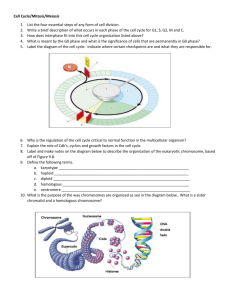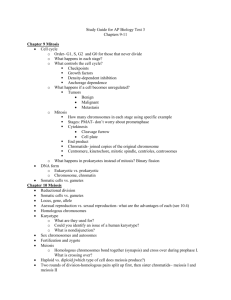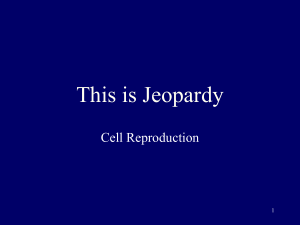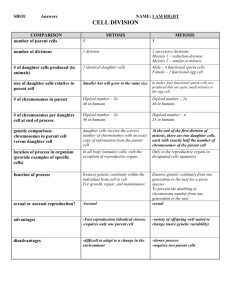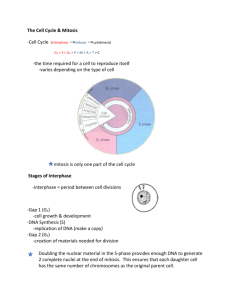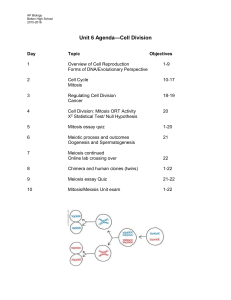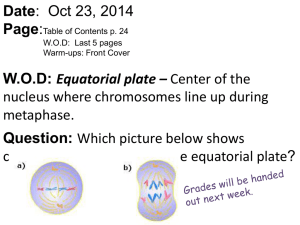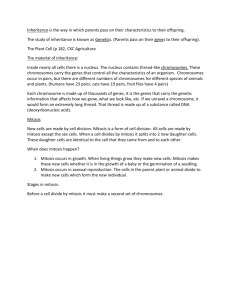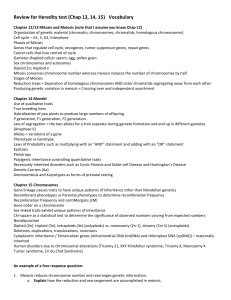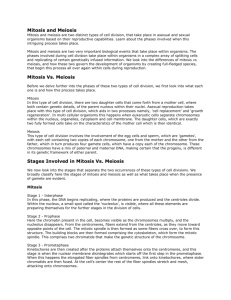Use the information you read about in sections 8.2 and 10.2 of your
advertisement
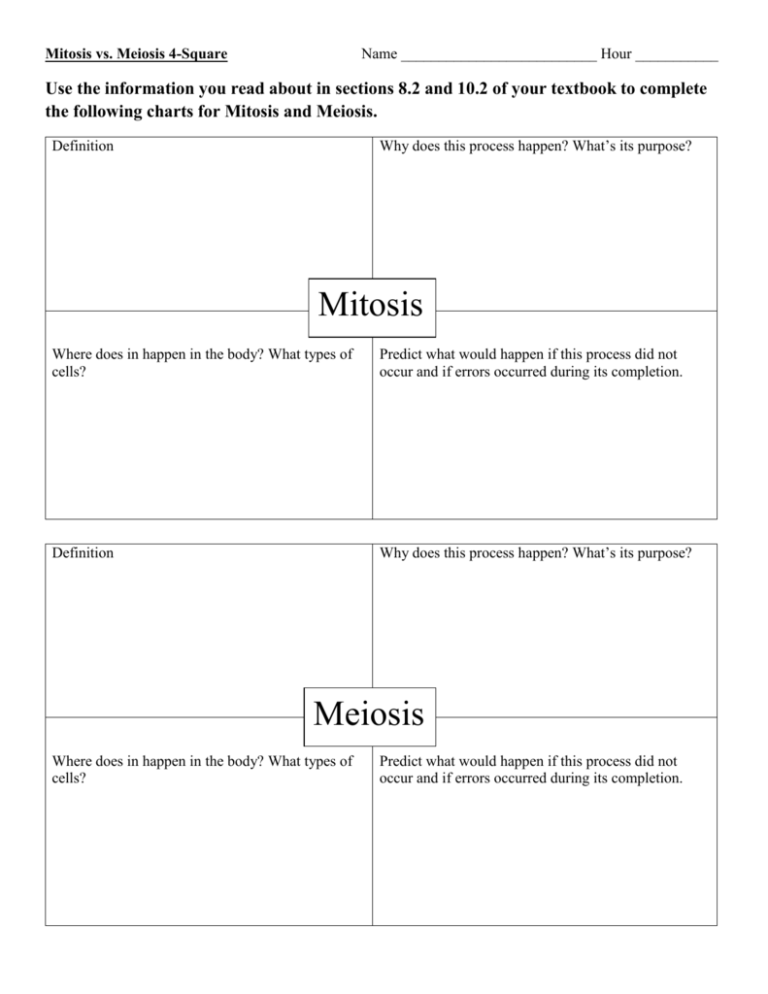
Mitosis vs. Meiosis 4-Square Name __________________________ Hour ___________ Use the information you read about in sections 8.2 and 10.2 of your textbook to complete the following charts for Mitosis and Meiosis. Definition Why does this process happen? What’s its purpose? Mitosis Where does in happen in the body? What types of cells? Predict what would happen if this process did not occur and if errors occurred during its completion. Definition Why does this process happen? What’s its purpose? Meiosis Where does in happen in the body? What types of cells? Predict what would happen if this process did not occur and if errors occurred during its completion. Comparing/Contrasting Mitosis and Meiosis The two processes of cell division (mitosis and meiosis) have many features in common, but they are very important events that are quite different. Listed below are several statements concerning mitosis or meiosis. In each blank, indicate which of the two types of cell division (mitosis or meiosis) is best described. 1. _____________ No pairing of homologs (homologous chromosomes) takes place 2. _____________ Produces two daughter cells 3. _____________ Forms gametes in eukaryotic cells 4. _____________ The chromosome number is reduced by half 5. _____________ Forms eggs or sperm cells 6. _____________ Occurs in most of the cells found in eukaryotic organisms 7. _____________ Maintains the chromosome number 8. _____________ Homologous chromosomes are paired 9. _____________ Two divisions take place 10. _____________ Four daughter cells are produced 11. _____________ Daughter cells are identical to parent cell 12. _____________ Daughter cells are different from each other and from parent cell 13. _____________ Single division takes place 14. _____________ Haploid cells are produced 15. _____________ Diploid cells are produced 16. _____________ Skin cells undergo this type of division 17. _____________ Sperm undergo this type of division 18. _____________ Fat cells undergo this type of division Please answer the questions below. 19. If a cell has 24 total chromosomes, how many chromosomes will each of its daughter cells have after MITOSIS? _____________ 20. If a cell has 12 total chromosomes, how many chromosomes will each of its final daughter cells have after MEIOSIS? _____________ 21. What are homologous chromosomes? You must include a drawing.
